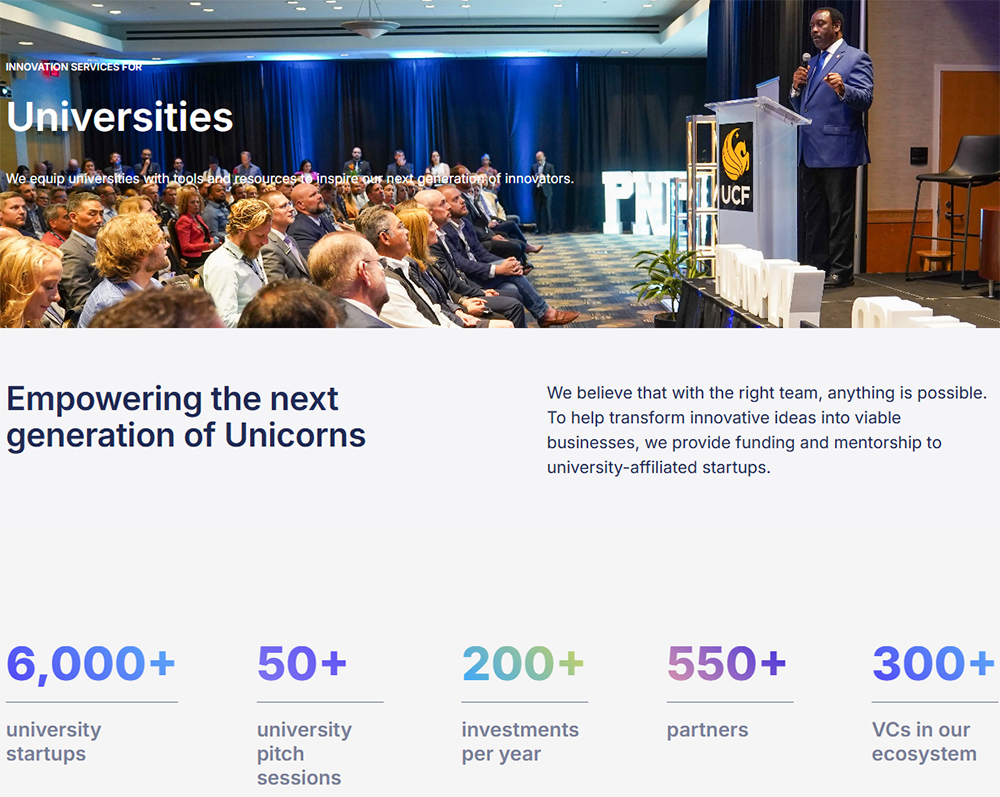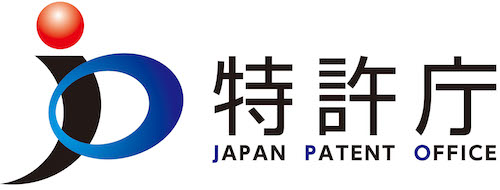IP BASE English Page
Interview with Alireza Masrour, General Partner, Plug and Play
Silicon Valley Capitalist Who Has Seen 100,000 Companies Suggests What's Important for Startup Development
Plug and Play, a venture capital and accelerator aiming to build a platform that fosters world-leading innovation, has over 60 locations in 20+ countries worldwide, including its headquarters in Sunnyvale, California, and has supported the commercialization and growth of over 20,000 startups to date. The company is well-known in Japan as one of the largest support organizations in the United States, having produced numerous unicorn companies such as Dropbox and PayPal, and currently boasts a portfolio of approximately 40 unicorn companies. We spoke with Alireza Masrour, General Partner at the headquarters, who works with a team of roughly 200 individual investors, to learn more about their efforts.

Alireza Masrour, General Partner, Plug and Play
Alireza Masrour joined Plug and Play in 2008. As a General Partner, he works with a team of approximately 200 individual investors. He has reviewed over 100,000 startups and of the 100+ that he decided to invest in, 15 have grown into unicorns. With an engineering and management background before joining Plug and Play, he founded and served as CEO of Nekatel, a marketplace, growing it to $45 million in annual revenue within two years. In 2007, he founded Vidatel, which sold mobile applications; both companies have since been sold. He was named one of Silicon Valley's 40 under 40 in 2018 and was also selected as one of Business Insider's 100 Rising Stars of Venture Capital, representing the future of VC.
Contributed to the creation of 5 of the 15 unicorn companies in Plug and Play’s portfolio.

Plug and Play began in a building in Palo Alto, California, purchased 30 years ago by founder and CEO Saeed Amidi. It was officially established in 2006 in a building in Sunnyvale, California, also purchased by the Amidi family. Plug and Play consistently houses over 400 startups and invests in more than 150 companies annually.
With a mission to accelerate innovation by connecting startups with advanced technologies to leading companies in various industries, universities, administrative agencies, and investors, Plug and Play conducts over 1,000 programs and events annually. They have invested in more than 2,000 companies across 25 industries alongside over 550 partners. Now, Plug and Play has grown into a global venture capital and accelerator with over 60 locations in 20+ countries and nearly 800 employees. In Japan, Plug and Play Japan, based in Shibuya, was established in 2019, with offices also in Kyoto and Osaka.
Alireza Masrour, who joined Plug and Play early in its second year of operation, is an active investor and General Partner working with a team of approximately 200 individual investors. Since its founding, Plug and Play has produced numerous unicorn companies and currently holds a portfolio of approximately 40 unicorns. Masrour has been involved with 15 of these and was involved in the initial founding of 5 of them. With his own experience as a startup founder, he possesses a keen foresight for identifying high-growth startups.
Masrour said of his job, “The job of each and every employee, including myself, is to serve and help the startup community reach their potential. That potential may be a $10 million exit or a $10 billion (decacorn) exit, but in any case, our mission is to help them get there,” he said.
He also cited "helping each other through teamwork" as a reason for the strong results of the company's 2,000-company portfolio.
"Specifically, we introduce startups with technology to over 550 companies that need that innovation. Innovation is attached to intellectual property and with licenses and IP, PoCs (Proofs of Concept) can be started. These PoCs, in programs spanning over 20 industries such as Walmart and Daimler, help companies raise funds. If those companies become pilot customers, it can stimulate growth and traction. The funds obtained there allow startups to increase hiring and further grow. In fact, of the 20,000 startups we've been involved with, about 3,000 have formed some kind of relationship with a corporation, and we help to ensure that these relationships develop sustainably," says Masrour.
It appears that Plug and Play's startup-centric approach, which has been maintained since its founding, is largely due to the contributions of CEO Saeed Amidi. It is said that, both in the past and present, the team has done everything possible for the startup community, while evolving the concept by observing the needs of corporations.
What Startups Really Need: An Engineer's Perspective
When Masrour first joined Plug and Play, he started by using his technical background to help the startup community establish their companies by securing funding. This resulted in significant growth and impact for the community. However, the tasks weren't particularly complex. For Masrour, who had experience founding companies, it was simple to help those who were just starting out and knew nothing, assisting with tasks ranging from basic company incorporation and opening bank accounts to applying for patents to secure intellectual property.
"Engineering is one of my diverse backgrounds, and while I have a deep appreciation for source code, I've also learned that [technology] is less important compared to people. Also, as a founder, if you've started a company and hired people, you try not to lay them off or force a withdrawal. You build a multi-dimensional understanding of the people surrounding the company by figuring out how to extract the best from each of them for the benefit of both the company and the individual. As part of that ecosystem, I've made an impact by introducing what entrepreneurs need first. And I believe the most important thing in building a business is gaining traction [concrete indicators or results that show growth or success in the market]." (Masrour).
Masrour states that while his experience as an engineer sometimes leads him to make judgments such as not investing in a company if he understands more than its CTO, this focus on technology isn't that significant. Rather, both management and engineers must have different perspectives, and the more perspectives there are, the better they can help people.
With the right team and technology, gaining traction is easy, and someone will surely help. The important thing is the Triple T: Team, Technology, and Traction. These help drive connections with corporations and more."
The Double-Sided Nature of IP: It's a Game

Although unicorns and intellectual property (IP) seem to have a deep connection, Masrour gave an unexpected perspective.
“I view IP as a double-edged sword and a game. If you're going to fight with IP, you have to do it at the earliest stages. However, allocating funds for that from limited resources shortens your runway (the period of time before your funds run out). Also, even if you secure your defenses, if a large corporation attacks, you'll similarly lack the resources to fight back. From what I've researched, about 20% of unicorns don't have IP and those that do have IP, have filed less than 10 patents. I also believe that ideas or IP alone won't make a company more than 10% successful. In reality, investors evaluate IP and traction, and what you want to do, not just intellectual property. Therefore, you shouldn't stop your business for fear of not having IP.” (Masrour)
"Additionally, many startups have intellectual property but choose not to file it - choosing to keep it secret. However, it's only a matter of time before it becomes known. So, my thinking is, whatever the idea, you should start a company. A large corporation should support someone with a strong connection to IP and fight alongside them. I fundamentally believe that everything should be open source and freely available to everyone. This creates the possibility for people to use it and start businesses. In a democratic, open system, people are needed who can work harder, contribute more, and execute better to build a better future for their company, team, family, university, city, country, and the global ecosystem."(Masrour).
Producing unicorns will contribute to the creation of such a global ecosystem, according to Masrour. He further states that universities are the first step in this process.
He adds, "While universities are places of research, research alone isn't rewarding unless it's monetized and commercialized. To achieve this, it's necessary to foster entrepreneurship and promote business concepts across all sciences. Universities and startups can grow together by laying the foundation for business and funding plans, creating a place for startups to emerge, and implementing capital policies. Excellent universities like Stanford have produced 4,600 startups in the past 11 years and focus on marketing to promote these startups. Adding support and injecting capital is also important, which the US government understands. A top-down approach to building a manufacturing industry employing 5,000 people from scratch is very costly. However, if it comes from entrepreneurs, the cost of creating and building a manufacturing plan can be minimized.
Plug and Play works with Japanese universities, but even the excellent ones don't seem to be creating that many companies. Our job is to support those universities, facilitate the ecosystem, and help eliminate boundaries. If they stop holding back for fear of the situation, they will grow. Considering the potential of a university with 1,000 students each year, at least 100 new startups are needed. People say there's not enough funding for that, but money always chases good ideas. If there are good ideas, there will be no trouble raising funds."
Predicting Success is Impossible, Even after Seeing 100,000 Companies. Preventing Failure is Key.
Masrour states that he has continued to be very active at Plug and Play, and has seen 100,000 startups over his 16-year career. There is no doubt that this experience has led to the production of many unicorns, but he says that there are still many things that remain unknown.
"When I first joined, I thought I'd understand everything after seeing 1,000 companies. But even now, I have no idea what makes things succeed. However, I understand very well what makes things fail. I've witnessed many failures, and I consider it my job to know them. Sharing and communicating these failures is an important task for the team.
However, we don't say, 'That's no good, stop because it won't work.' One of our jobs is to help companies avoid hitting walls, such as running out of money. But if we see that it's going to fail tomorrow, sometimes we decide that it's a better use of time to shut down the company quickly and pivot. The biggest mistake anyone can make is raising funds for something that you don't think has a 100% chance of success. That's why we tell startups they should be open and transparent with investors. The sooner they share, the better help they can receive."
The important thing is to talk to customers. They buy your product because you have something concrete, and you learn from knowing that, even if they don't buy it. It's a better use of time than waiting for someone to come and tell you what to do. Things are moving at the speed of light, so you have to be proactive. That's what our job is, to help with that kind of movement. If customers or funding are needed, we'll help if we have the capacity. We won't say no to someone who needs help." (Masrour)
Plug and Play has access to any market and can assist Japanese startups in joining the ecosystem. However, there was a harsh critique that, at present, Japanese startups' contribution to the ecosystem is low compared to Japan's population relative to the global population. Nevertheless, Masrour expressed his excitement for what Plug and Play can achieve in the Japanese market and concluded the interview by expressing his desire to work together.


